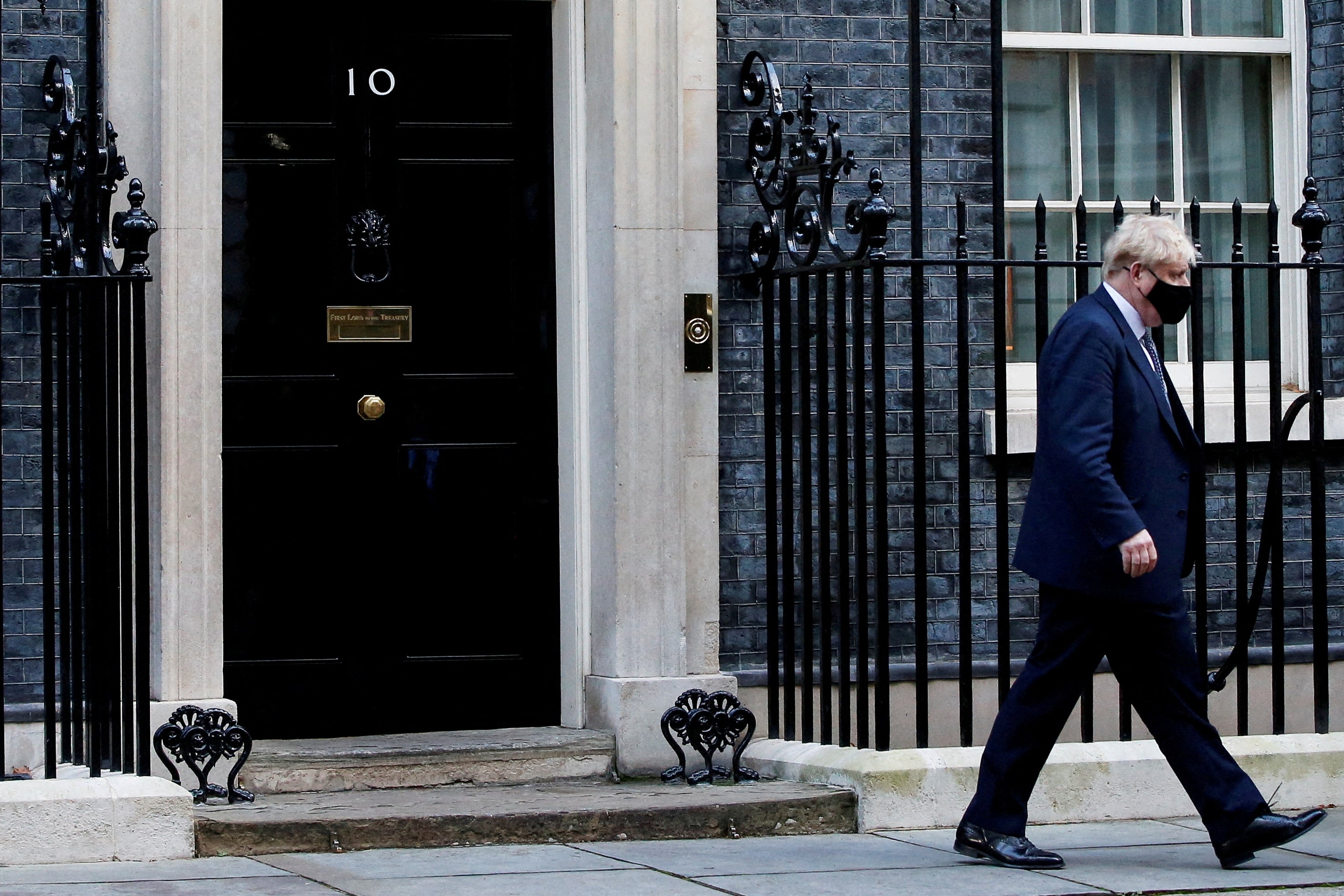The Liberal Democrat’s motion of no confidence in Boris Johnson over Partygate is ultimately futile
The most superficially powerful of parliamentary weapons, the motion of no confidence generally has little real effect and can actually strengthen a prime minister, writes Sean O’Grady


The decision by the Liberal Democrats to table a motion of no confidence in the prime minister, Boris Johnson, is a curious one. It is not the conventional proposition usually put to the House of Commons, that “this house has no confidence in Her Majesty’s government”. Instead the Liberal Democrat leader Sir Ed Davey is using a parliamentary device called an Early Day Motion (EDM), and reads as follows:
“That this house has no confidence in the prime minister because he has broken the Covid-19 lockdown laws his government introduced, misled both parliament and the public about it, and disastrously undermined public confidence in the midst of a pandemic.”
Being more focused on Johnson himself and “Partygate”, the idea, presumably, is to embarrass Conservative MPs into arguing in favour of the prime minister’s behaviour, which amounts to constant references to the Sue Gray investigation – which is still being conducted. A motion of no confidence in the government would tend to rally the Tory troops; but with the prime minister’s unpopularity in sections of his own party, this motion seems better designed to get a result – to make the Tories squirm and look ridiculous.
Having said all that, EDMs are in reality little more than political gestures, and the “early day” of debate they seek is seldom granted. They’ve been derided as “parliamentary graffiti” and, unless confined to charitable causes, tend not to garner cross-party support. As things stand the Liberal Democrats’ motion has the 13 signatures of the entire Lib Dem party in the Commons, plus the support of three Labour backbenchers, two Plaid Cymru members and one MP from the Alliance Party of Northern Ireland. If the motion ever did get time to be debated in the Commons it seems it would be effectively ignored by the government, the official opposition and the Scottish National Party.
With a large government working majority (presently 77) such exercises are essentially “performative”, and sometimes counterproductive. Indeed, that is also the case even when a government has a slim majority or is in a minority.
The last formal vote of no confidence, for example, came in January 2019 after Theresa May had lost a series of votes on Brexit by crushing margins. Trying to capitalise on the disarray and build on the impressive progress he’d made at the 2017 snap election, Jeremy Corbyn tabled a motion of no confidence in the government. This would have tipped May out of office and, just maybe, resulted in Corbyn forming an administration instead – a tempting prospect for him at least. (This was because of the peculiar workings of the Fixed-term Parliaments Act which ruled out an instant automatic general election.)
In the event, Corbyn’s ploy came to nothing, and May survived with a majority of 19, thanks to her backbenchers’ reluctance to hand Corbyn a victory, and her pact with the DUP.
The minority governments of John Major in the 1990s and Jim Callaghan in the 1970s experienced similar travails - losing crucial votes on policy but sometimes then themselves calling and winning motions of confidence. Winning the vote tended to bolster the prime minister of the day with a “win”, however fleeting or contrived.
Strange to say, then, the most superficially powerful of parliamentary weapons, the motion of no confidence generally has little real effect and can actually strengthen a premier. Only three motions of no confidence in the government have been passed and succeeded in prompting a general election in the past century – in 1923, in 1924, and in 1979 (when the Callaghan government finally ran out of luck; and their lost confidence motion had actually originated as an EDM).
In 2019, it was the government, perversely, that wanted a motion to be passed to turn itself out office and secure an early general election. It had to use a specially formulated motion to override the Fixed-term Parliaments Act, and so was not really in the same tradition as the older no confidence procedure. Those in the early Johnson administration believed a dissolution of parliament was needed, in their view, to break the Brexit stalemate and win a majority, but were prisoners of a divided Commons. In the event, a strange echo, it was the decision of the then Liberal Democrat leader, Jo Swinson, to oblige Johnson and back the motion that led to him winning his historic feat.
An alternative parliamentary tradition would be to table a motion calling for a reduction in the prime minister’s salary, but it might look a bit silly to the country at large, and would be equally futile. The obvious truth that Johnson’s fate lies in the hands of Conservative MPs, not Liberal Democrats, holds.
Join our commenting forum
Join thought-provoking conversations, follow other Independent readers and see their replies
Comments